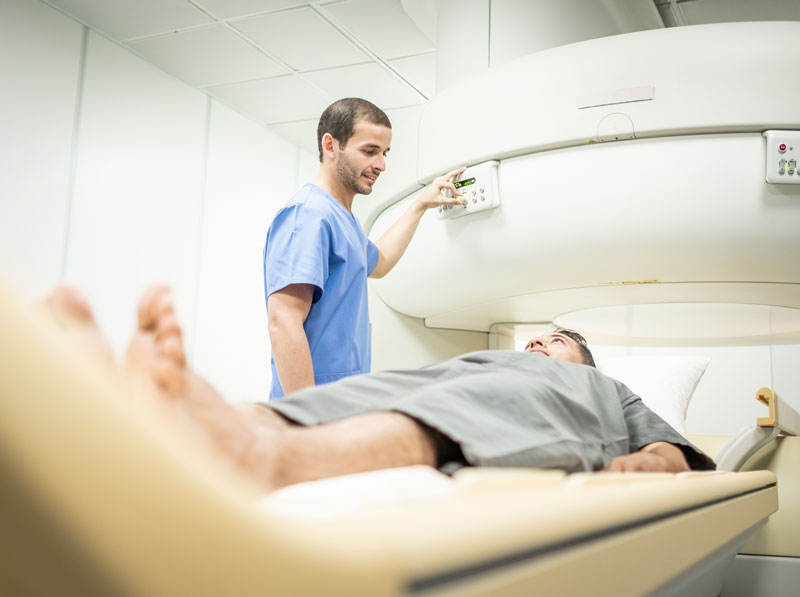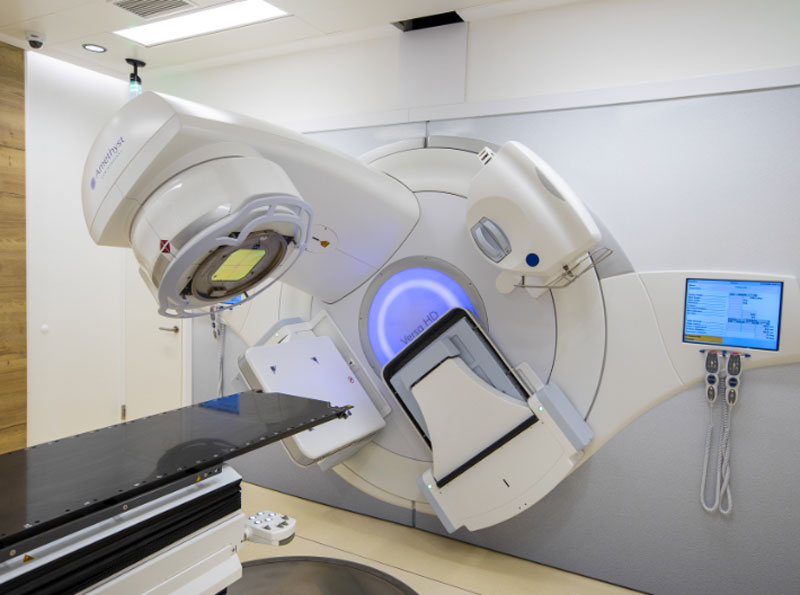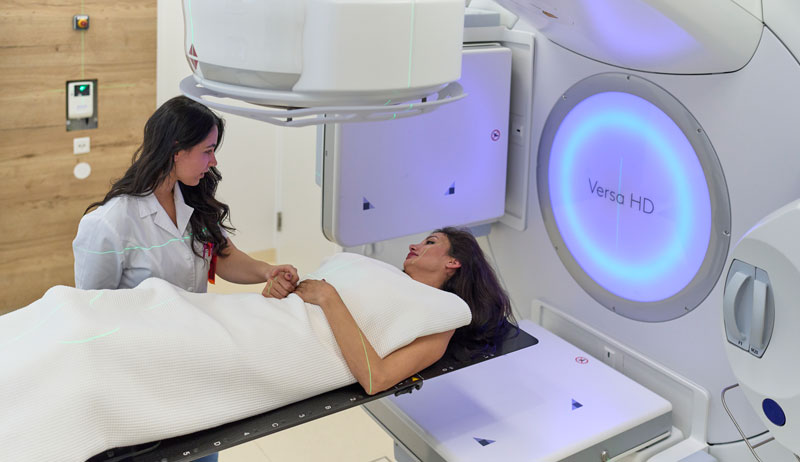For example, is it being used to cure the cancer, relieve your symptoms or make other treatments more effective?
Deciding to have treatment
If you’re diagnosed with cancer, you’ll be cared for by a team of specialists. Your team will recommend radiotherapy if they think it’s the best option for you, but the final decision is yours.
Making this decision can be difficult. You may find it useful to write a list of questions to ask your care team.
If you agree with your team’s recommendation, they’ll start to plan your treatment once you have given your consent of treatment.
Questions to ask
Planning your treatment
Your treatment will be carefully planned to ensure the highest possible dose is delivered to the cancer, while avoiding damage to nearby healthy cells as much as possible.
You will likely undergo a CT scan to determine the exact location and size of the cancer.
Following the scan, small, permanent ink marks may be applied to your skin to ensure the targeted area is accurate each time.
If you are receiving radiotherapy to your head or neck, a plastic mask will be created for you to wear during treatment, and the ink marks will be applied to the mask.
Your treatment
Radiotherapy is typically administered daily over the course of several weeks.
Before treatment starts, your care team will create a plan that outlines:
- The type of radiotherapy you’ll have
- How many treatment sessions you’ll need
- How often you’ll need treatment
Most people receive five treatments per week (one treatment a day from Monday to Friday, with a break on the weekend). However, in some cases, treatment may be given more than once a day or over the weekend.
Your doctor may refer to each dose as a ‘fraction,” though the term “attendance” is sometimes used to indicate the number of hospital visits required during treatment.”
How radiotherapy is administered
About your treatment
Once your treatment plan is finalised and all necessary checks are completed, the actual treatment will begin. The process is similar to having a scan, and you will lie down with your head frame supported to ensure you remain still.
You will be awake during the treatment and able to communicate with the treatment team through an audio and video connection. If needed, breaks can be incorporated into the treatment to ensure your comfort.
External radiotherapy
During external radiotherapy, you lie on a table while a machine directs beams of radiation at the cancer.
The machine is operated from outside the room, but you’ll be monitored through a window or camera. There will be an intercom if you need to speak to the person treating you. You need to remain as still as possible throughout the treatment. It usually takes only a few minutes and is completely painless. You can typically go home shortly after it has finished.
Side effects of radiotherapy
As well as killing cancer cells, radiotherapy can damage some healthy cells in the area being treated.
This can cause some side effects. Many of these side effects can be treated or prevented and most will pass after treatment stops.
External radiotherapy does not make you radioactive, as the radiation passes through your body.
The radiation from implants or injections can stay in your body for a few days, so you may need to stay in hospital and avoid close contact with other people for a few days as a precaution.
Possible side effects
Contact Amethyst
Want to know more about our Radiation Technology?
Our friendly staff are here to help you, get in touch with them today.





